PICO Question: Evaluating Communication's Effect on Patient Outcomes
VerifiedAdded on 2021/04/21
|6
|1030
|274
Homework Assignment
AI Summary
This assignment presents a PICO question exploring the impact of effective communication between patients, families, and caregivers on patient outcomes. The paper utilizes an evidence-based research approach, framing the question with the PICO elements: Problem/Patient, Intervention/Indicator, Comparison, and Outcome. The background emphasizes the importance of communication skills, including verbal and non-verbal aspects, in building therapeutic relationships and trust. The assignment highlights research indicating that effective communication is crucial for patient understanding, satisfaction, and involvement in decision-making, particularly for elderly and chronically ill patients. The intervention focuses on effective communication, while the comparison considers the absence of effective communication. The expected outcome is better patient outcomes or reduced symptoms. The rationale underscores the necessity of communication in providing safe patient care, supporting interdisciplinary teams, and influencing patient recovery. References include studies supporting the positive impact of communication on patient length of stay and overall care quality, reinforcing the importance of this topic for research and practice in nursing.
1 out of 6
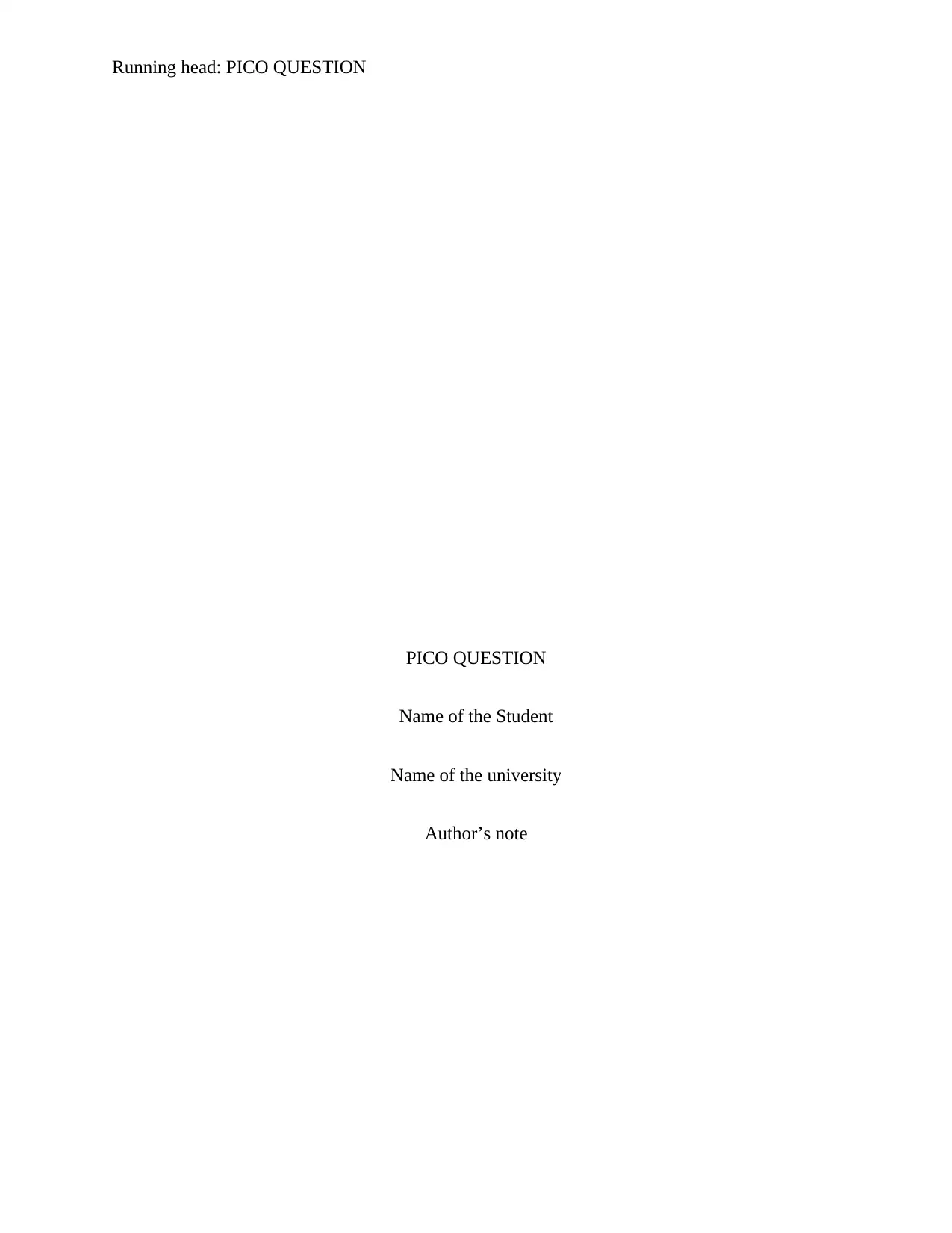
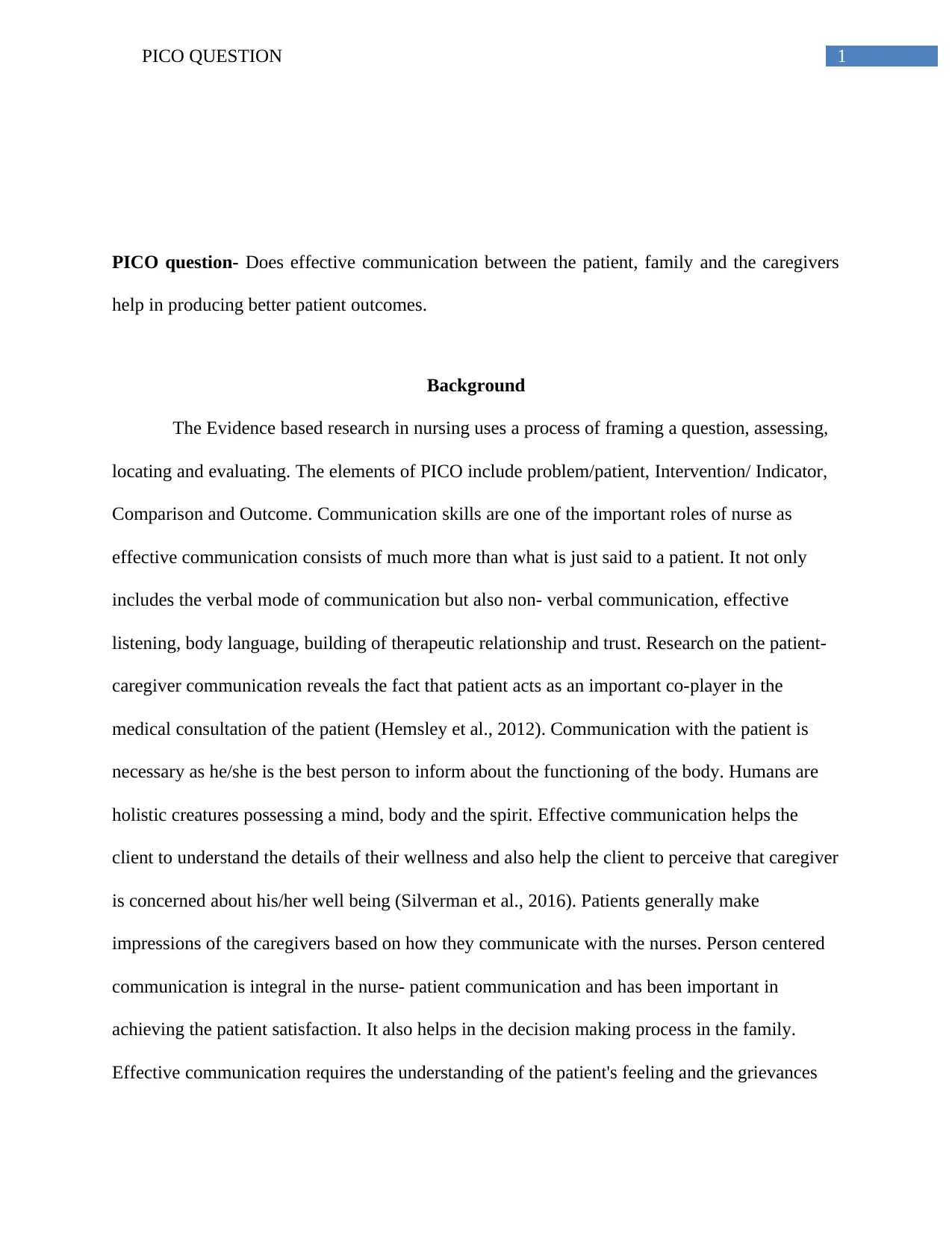
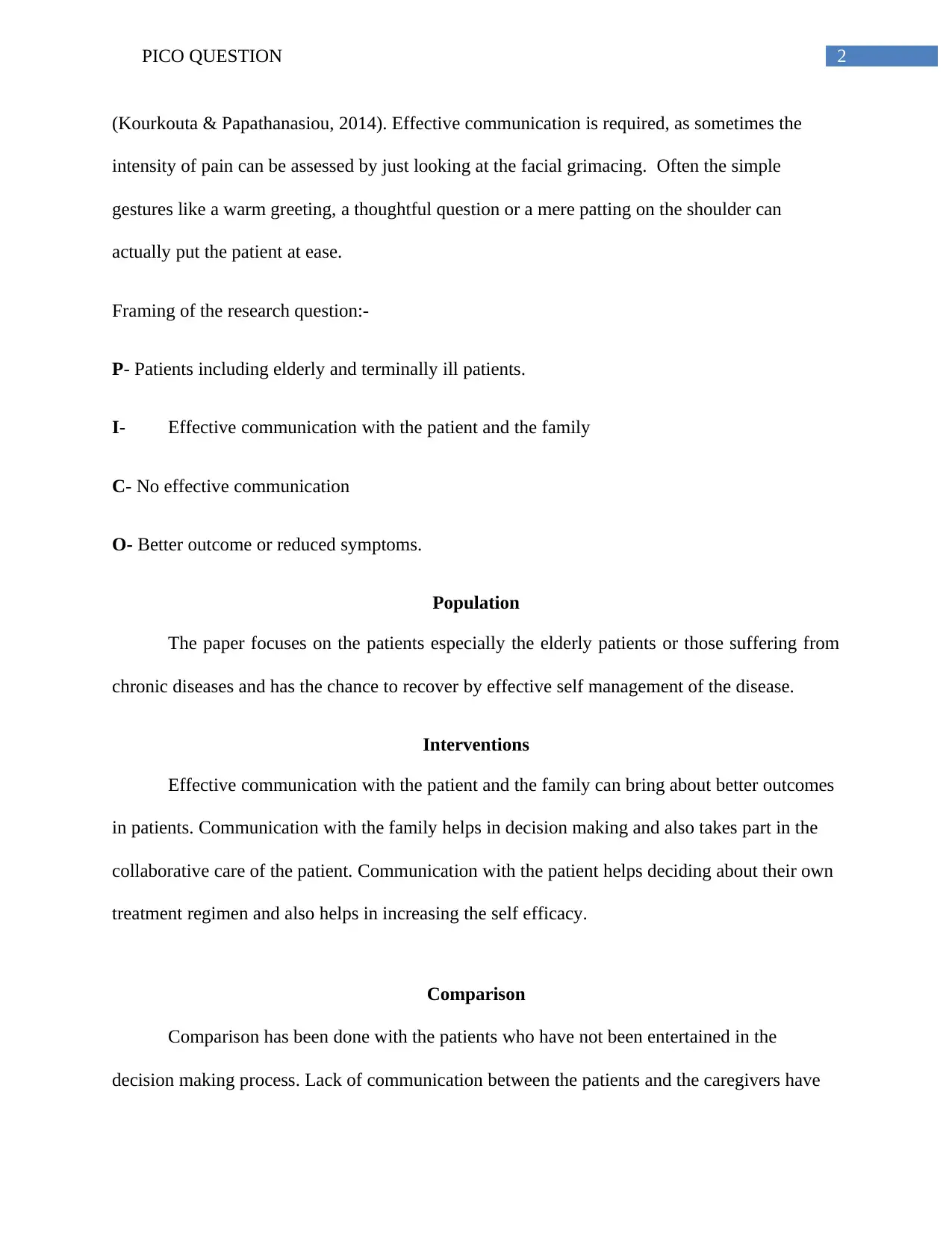

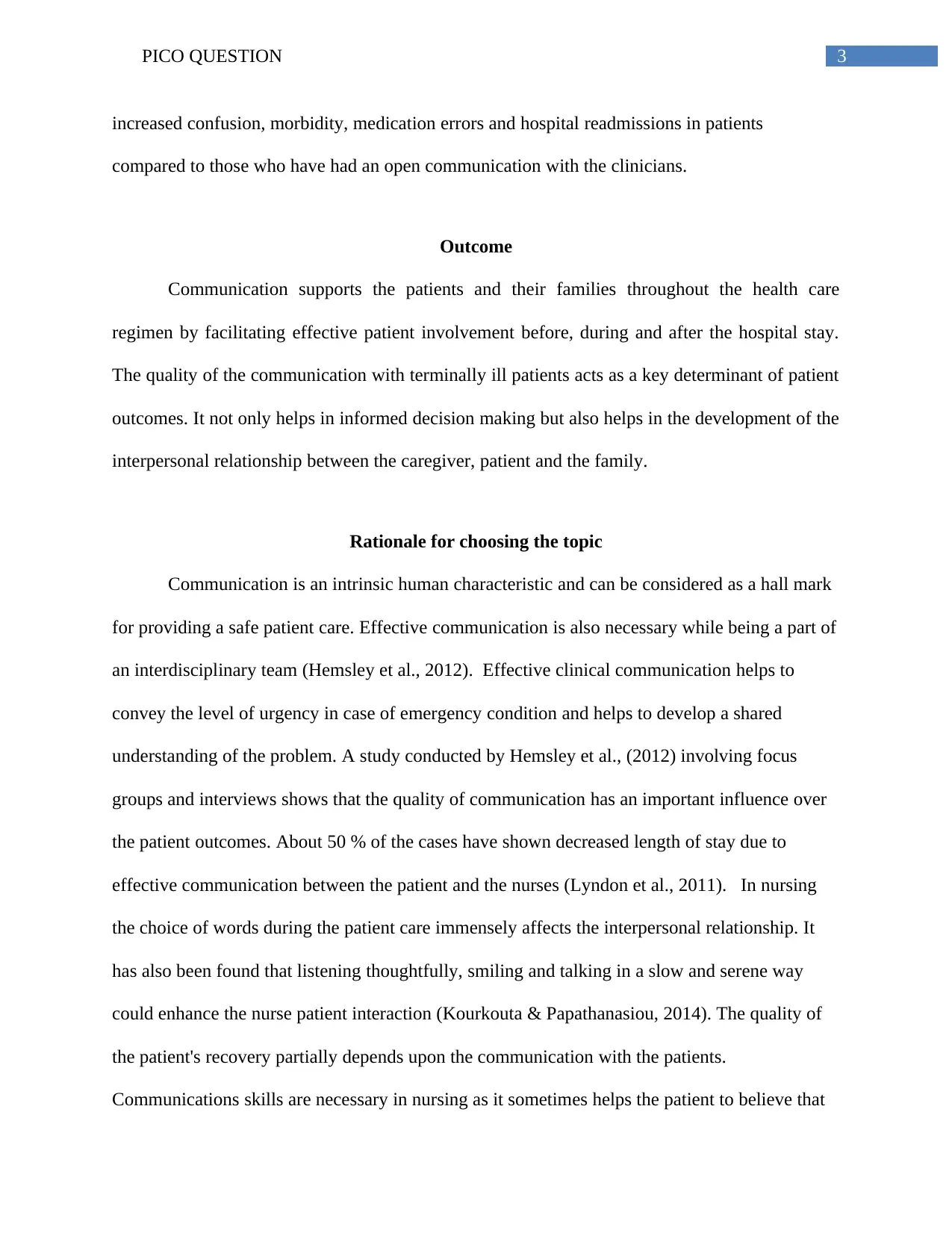
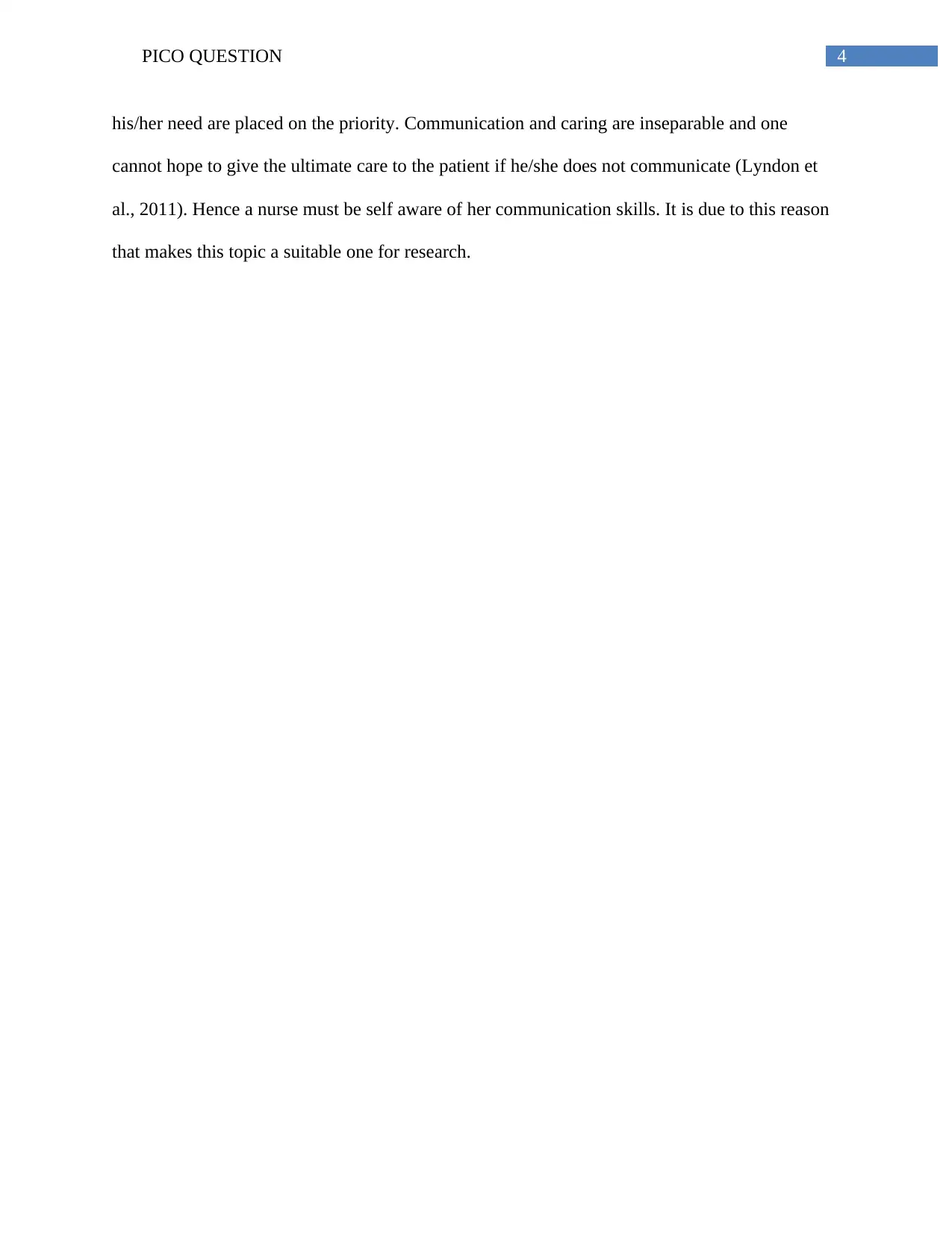
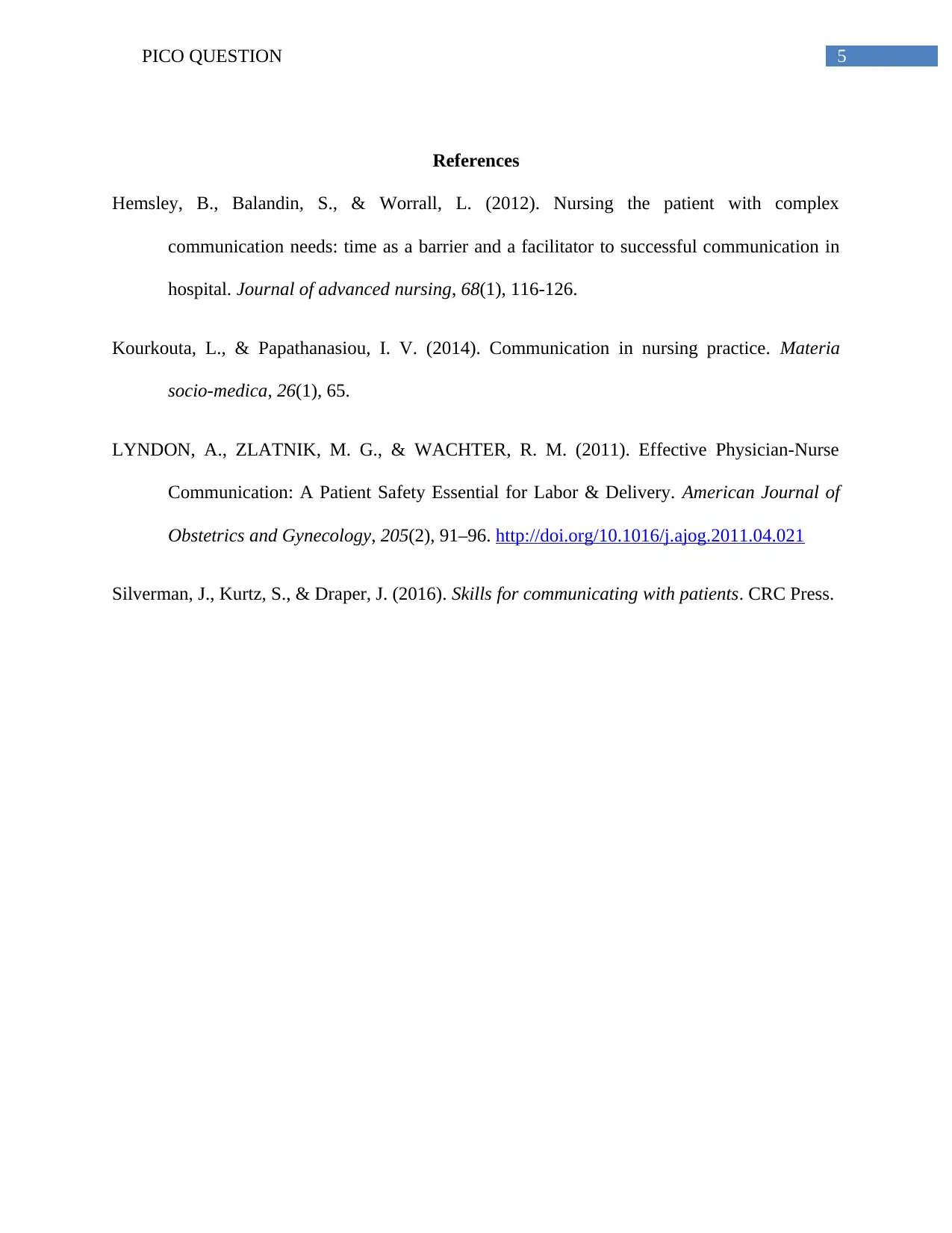






![[object Object]](/_next/static/media/star-bottom.7253800d.svg)